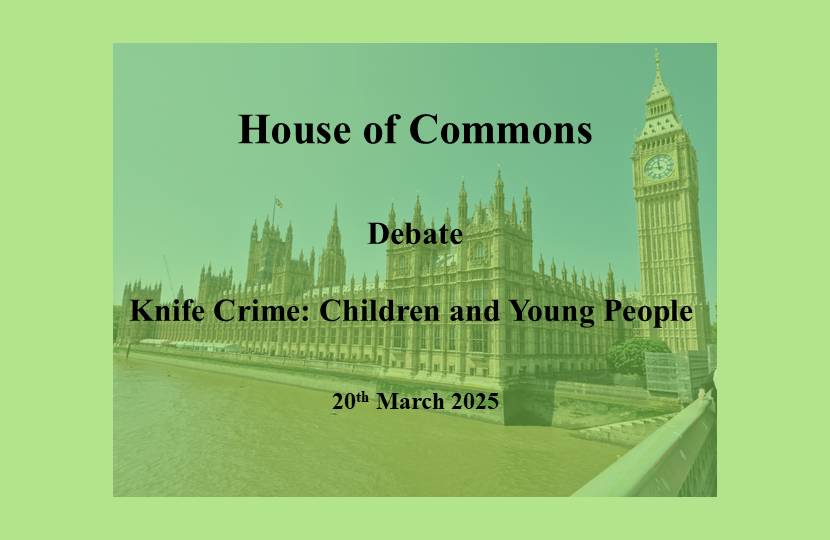
Chris Calls For Immediate Action & Tough Measures On Knife Crime
Christopher Chope Conservative, Christchurch
I congratulate my hon. Friend on bringing to the House this horrific catalogue of embarrassing incidents—embarrassing to Members of this House and previous Administrations, because we have been asleep on the job. The legal authorities were able to stamp down on last summer’s riots in Southport so effectively by taking tough measures; does he agree that that is called for now? Talk about reducing the incidence of knife crime by half over 10 years is totally inadequate. Immediate action is needed to make an example of this type of crime and deter others from participating.
Ben Obese-Jecty Opposition Assistant Whip (Commons)
I agree. The law simply does not act as a deterrent to many of these people. They are far more scared of their immediate surroundings and the danger posed to them in everyday life than they are of being arrested by a police officer, knowing full well that they are unlikely to go to prison unless they have done something as heinous as some of the acts that I have described.
Ciaran Thapar, the author of the piece that I just described, appeared before the Youth Select Committee last December in his new role as director of public affairs and communications at the Youth Endowment Fund. There, he explained how drill was an outlet for those involved to express the trauma that they have experienced in their lives. Adverse childhood experiences are a key part of fuelling the likelihood of vulnerable individuals becoming involved in knife crime. There is a broader question here about immigration, particularly from countries where experiences of trauma, brutality and war are contributing factors in youth behaviours within multicultural inner-city communities. The Youth Endowment Fund does important work on knife crime, and its toolkit is often cited as a key resource in providing the tools required to reach children.
Last week I spoke to Sharon Ward, the serious violence duty co-ordinator in Cambridgeshire and Peterborough, covering my constituency of Huntingdon. The serious violence duty was introduced by the previous Government in January 2023, and requires local agencies to share data and information to help identify the root causes of serious violence occurring locally. When I spoke to Sharon about this in depth, she explained that they use a multi-agency public health approach, addressing the underlying risk factors that increase the likelihood that an individual will become a victim or perpetrator of violence in the first place.
The most vulnerable time for children and young people is from 3 pm to 6 pm, as well as later in the evening from 10 pm until 2 am. Diversionary activity is key to reducing those vulnerabilities. Sharon outlined how the path to becoming involved in violence is a slippery slope, where participation in antisocial behaviour is linked progression to more violent crime. I am sure that the subject of funding for youth services and cuts under the previous Government will be raised. I have focused on less discussed aspects of this wider issue in my speech; however, the part played by youth workers in reaching children and young people who are vulnerable and at risk of embarking on the wrong path is well-documented.
Cambridgeshire and Peterborough currently have 41 interventions funded by the serious violence duty. They range from sport-based interventions to mentoring and relationship building, but all are designed to help those assessed as vulnerable. We must also be mindful that it is not simply about children from certain backgrounds—children from all backgrounds are vulnerable to exploitation by gangs. Those children do not realise that they are being exploited because of the way that they are being groomed—they are given new trainers, a PlayStation game or a bike by an older person they look up to or are fearful of, seemingly with no strings attached. Then they are on the hook and owe them at best a favour, or at worst a debt.
- ENDS
